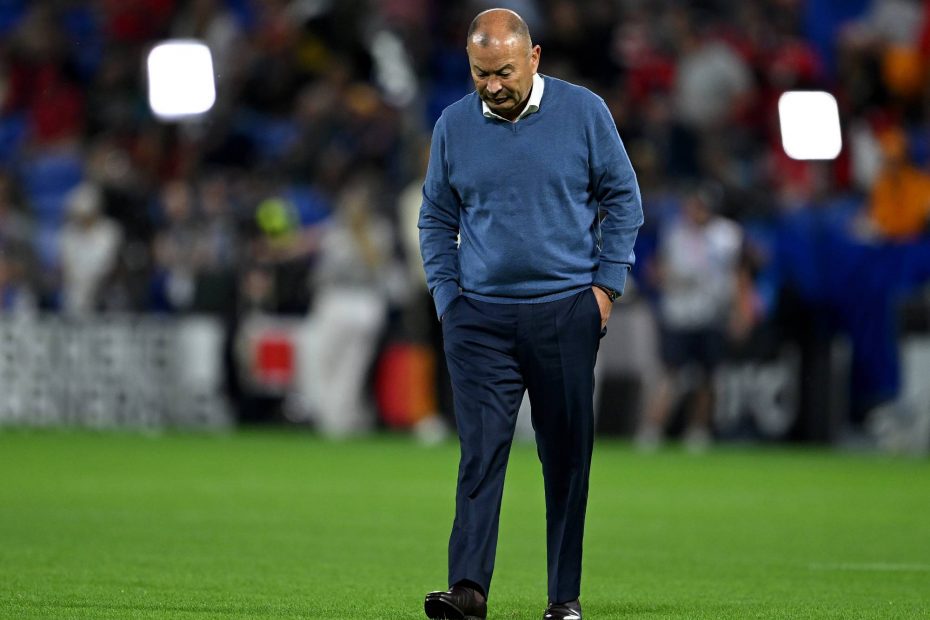So, Eddie Jones is staying on as the Wallabies’ coach, at least for now. That being the case, there are some questions that need to be asked.
First of all, there is the issue of Japan. The Sydney Morning Herald ran a story, and continues to refer to it, stating Jones was in contact with Japanese rugby officials about the possibility of his coaching the Brave Blossoms. Jones seems to deny this, although not strenuously enough for my liking. Still, it raises the question of his commitment to what is going to be a very difficult gig in the next few years.
The next question that comes to my mind is, if he is the best coach in world rugby as suggested by Hamish McLennan, then why did England sack him as their coach with just a year to go before the Rugby World Cup? Given England’s success so far at the RWC, perhaps this was a masterstroke. However, the question remains: why did they sack him?
Wallabies coach Eddie Jones. (Photo by Hannah Peters/Getty Images)
Also, why were the Wallabies so Ill-prepared for the RWC? Surely there was enough time to build some sort of cohesion, and yet the players look like they were meeting each other for the first time and their lack of coherence makes me wonder what on earth they were doing in the months of preparation.
Why was Jones allowed to make selection calls that were clearly risky at best, and downright reckless as it turned out? Who is going to moderate the selection of players who are clearly not ready for the level they have been selected to play at, while leaving out experienced players who would have at least brought some sort of wisdom and calmness to a jittery outfit?
Why was Will Skelton selected as captain? Here is a player who turned his back on Australian rugby, perhaps understandably for his own financial security. So do we reward this with the captaincy amongst a group of players who may well have barely known him? That seems to me to be demeaning to the position as well as disruptive to the team.
Could anybody discern a pattern of play that had been developed for the World Cup? Even in the fixtures against Georgia and Portugal, where the pressure was slightly less than in the matches against Wales and Fiji, I could not perceive what the team was trying to achieve.
Wallabies captain Will Skelton with the squad after their World Cup loss to Wales. (Photo by Chris Hyde/Getty Images)
There did not seem to be a plan or pattern that was building in the decisions that were being taken at any one time. There was no fundamental aim or objective that I could clearly understand. Perhaps it was so nuanced that I missed it.
Why do assistant coaches not stick with Jones? Is he so demanding and lacking in respect for those who are working with him that they do not remain loyal? Some very competent and astute people have left Jones’ stable while he has been in charge, wherever he has been the boss.
The reduced stability after the disastrous sacking of Dave Rennie had to be a factor in the failure of the World Cup mission. To lose Dan McKellar to English rugby was a significant loss to the cause. Hopefully it will only be temporary.
Why must Jones treat journalists with such disdain during press conferences when they ask questions that everybody would like to know the answer to? Is it useful for him to give offhand answers that have not been thought through and do not provide the information that would suggest otherwise?
All did not bode well when just before jetting out to France, Jones declared the airport press conference as the worst ever. Surely journalists, as annoying as they may be, deserve greater consideration.
There are probably other were the questions, but answering these would help me understand why Jones is staying on. Perhaps Hamish McLennan could answer them because it seems he was instrumental in this disaster.
